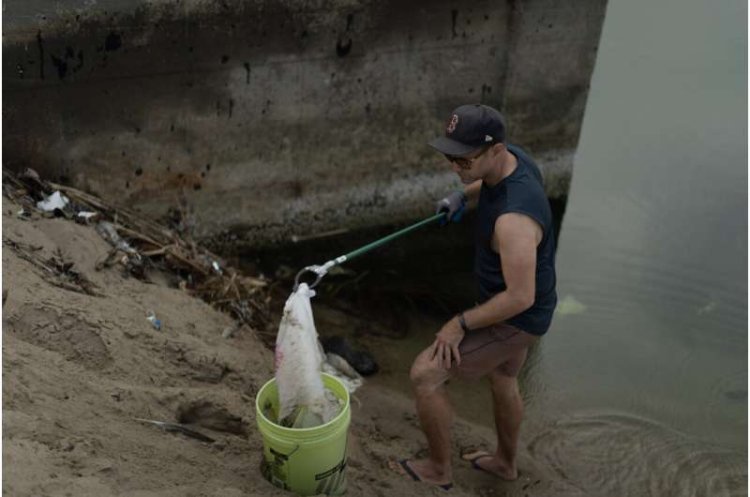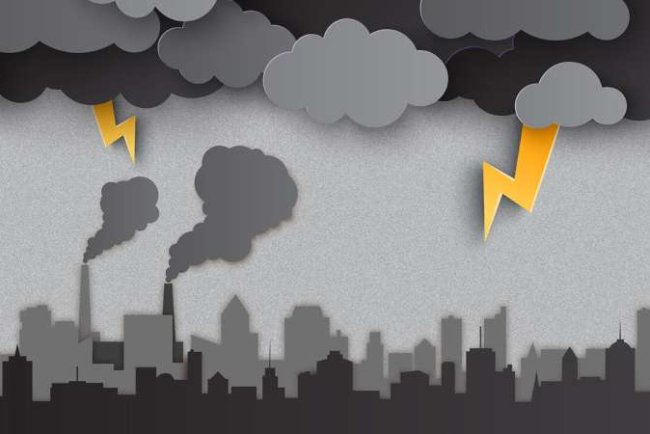Plastic Bag Bans and Fees Cut Shoreline Litter by Up to 47%, Study Finds
A study by the University of Delaware and Columbia University finds plastic bag bans and fees reduce shoreline plastic bag litter by up to 47%. Based on data from tens of thousands of coastal cleanups, the research provides strong evidence for policy effectiveness but warns that overall plastic pollution continues to grow.

Plastic bag taxes and bans have been shown in a recent peer-reviewed study to decrease plastic bag litter on shores in the U.S. by a considerable amount. The study, done by the University of Delaware and Columbia University, measured a drop in plastic bag litter from 25% to 47% where there were plastic bag policies in place, compared to regions with none.
Plastic bags, the predominant beach clean-up item, are a leading source of marine pollution. Not degradable and light in weight, they escape waste treatment and find their way into oceans, entrap marine life, and disintegrate into toxic microplastics. While the number of more than 100 nations that govern in some form has increased with increasing plastic pollution awareness globally, their immediate effect on the environment has not been studied extensively until recent times.
In the Science research, researchers pulled from data in the Ocean Conservancy's Trash Information and Data for Education and Solutions (TIDES) database. The database aggregates reports on hundreds of thousands of cleanups along the world's coastlines, including volunteer reports on the Clean Swell app. Researchers contrasted these reports with more than 600 plastic bag policies implemented between 2007 and 2023 and thus quantified shoreline trash trends pre- and post-policy implementation.
The writers selected the United States as their case study because the country lacks a federal law regarding plastic bags, and thus they were able to compare by regulation level from towns and counties to states. Their results indicate that those places with plastic bag legislation all experienced a measurable reduction in the percentage of plastic bags that were discovered through cleanups along shorelines.
The scale of decline grew larger over time in these regions, and rebound in littering rate was never witnessed, even many years after policy implementation. This long-term trend proves that these initiatives not only have short-run impacts but can sustain long-term reduction of plastic waste in the environment.
State-level policies proved to have more influence than local ordinances. Policies charging fees for plastic bags, instead of flat bans, seemed even more successful in lessening litter. Although the exact cause of this disparity requires further study, it indicates that economic disincentives can impact consumer behavior more than restrictions.
It was also discovered through the research that policy functioned better where there was a higher plastic bag litter baseline. It would imply that more can be done in cities having an advanced plastic pollution problem.
But scientists also admitted an uncomfortable trend: even with these regulations, plastic bag litter as a percentage of overall shoreline trash still increases. That is, policy retards the increase of plastic trash but does not stop it. It shows the limitation of policy aimed at plastic bags in responding to the general plastic pollution problem, which continues to grow worldwide.
The research places a heavy focus on the necessity of concerted action at global and national levels. It precedes the United Nations Environment Programme's scheduled negotiation of a global plastic treaty in August 2025 by only a couple of months. The results present themselves as timely, data-driven outcomes that policy interventions can effectively reduce plastic waste and could be used as a stepping stone for further increased global action.
Above all, the study varies from other economic analyses of plastic bag prohibitions, which, in most cases, employed point-of-sale data. Rather, environmental impacts—substantial estimates of plastic bag litter on the environment—are utilized in this study, producing more tangible proof of the policy's effectiveness.
Based on the data gathered by the authors, urban Americans now reside in roughly one-third of the country with permanent plastic bag laws. They differ in size, but they all symbolize a break from the way local governments treat single-use plastics.
The results also demonstrate the power of citizen science. Data gathered by volunteers at cleanups are increasingly used to assess environmental policy. As research scientists and agencies increasingly turn to such data sets, the place of community participation in environmental monitoring grows further.
The success of bans and fines deserves them to be extended further, especially to areas plagued by endemic plastic pollution. However, the rising proportion of plastic bags in total litter—after regulation—indicates that ad hoc policy steps are insufficient. National regulation, industry responsibility, and public education will be needed if real change is to be achieved.
As plastic pollution goes global and its effects become more evident in food webs and throughout ecosystems, timely studies such as this provide important guidance to policy makers. The research rightly demonstrates regulation will do the job but also reminds us that further, system-wide changes are sorely needed.
Source:University of Delaware. Original work published in Science (2025). Authors: Anna Papp and Kimberly Oremus. DOI: 10.1126/science.adp9274
What's Your Reaction?

















